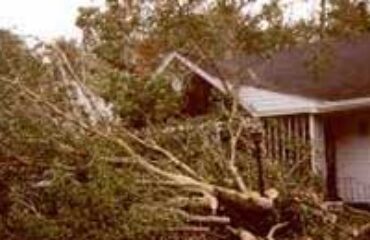
|
1. What is a public insurance adjuster?
2. What is an independent adjuster? 3. How do adjusters determine the actual loss? 4. Will a public adjuster help me receive a more prompt and satisfactoy settlement? 5. How much do adjusters charge for their service? 6. If I suffer a loss, what steps should I take? 7. What type of claims to public adjusters handle? 8. Why do I need help with my claim?
What is a public insurance adjuster? An authority on loss adjustments who you can retain to assist you in preparing, filing, and adjusting your insurance claims. What is an independent adjuster? An independent adjuster is an adjuster who works as an independent contractor with insurance companies or other organizations to investigate and settle claims. Independent adjusters are required to be licensed by the state. Compare to Public Adjuster. How do adjusters determine the actual loss? They take a physical inventory, obtain all pertinent appraisals and make sure all provisions in your policy are properly fulfilled. This often involves numerous steps of which you may know little or nothing, but can make a significant difference in the amount of the final adjustment. Will a public adjuster help me receive a more prompt and satisfactoy settlement? Yes. They lose no time in complying with the policy requirements to obtain and evaluate the facts and prepare the claim. The alert, knowledgeable and prompt service they render often preserves evidence that may otherwise be overlooked or destroyed. The more thoroughly and completely your claim is compiled and prepared, the faster your public insurance adjuster can accomplish an equitable and proper settlement in you best interest Once a policyholder has witnessed the skill and knowledge of the accredited public insurance adjuster, he or she rarely will attempt to settle a claim without the benefit of their specialized assistance. The public insurance adjuster’s most frequent sources of new clients are the recommendations of those they have previously served. How much do adjusters charge for their service? Your public insurance adjuster’s charge is a percentage of the insurance company’s settlement with you. By seeking to maximize your settlement, your public insurance adjuster’s services can save you the cost of their fees, at the very best. If I suffer a loss, what steps should I take? Promptly report the loss to the agent or broker, or directly to the insurance company – and immediately retain the services of an accredited public insurance adjuster to serve you. What type of claims to public adjusters handle? They will assist you in any claims you may have due to windstorm, explosion, and any other insured losses that are sustained (inland marine, business interruption, rental income, improvements and betterments, commission and profit, reporting forms, additional expense, etc.). Why do I need help with my claim? There are several reasons why you may want to consider receiving help with your claim. Filing a claim requires a written, itemized statement of your losses. You may not realize what the extent of your damage is, and the insurance company is not obligated to tell you. The burden of proof is on YOUR shoulders. A public adjuster will help you identify everything that you are entitled to. Also, filing a claim is a very time-consuming and aggravating process. During this emotional process you don’t have the presence of mind to spend hours ofinventory itemization and to argue with your insurance compny whether something should “just be repaired” or to be completely replaced. A policy holder is at the mercy of insurance company. Someone who is untrained in handling insurance claims, you will be dealing with insurance professionals who will not hesitate to use any slip of the tongue against you. They may low-ball you and won’t even know it, until it’s too late. Your adjuster can find damage tht the untrained eye will otherwise not see. He is well versed with what the insurance company wants to hear and what they don’t want to hear and he knows how to present our claim for maximum success. [footer1]
|





